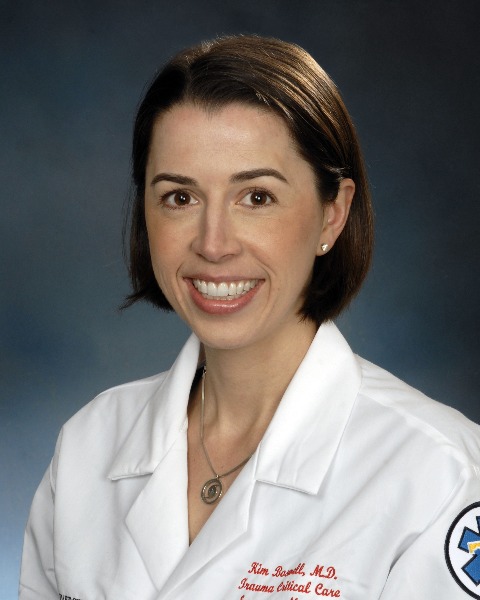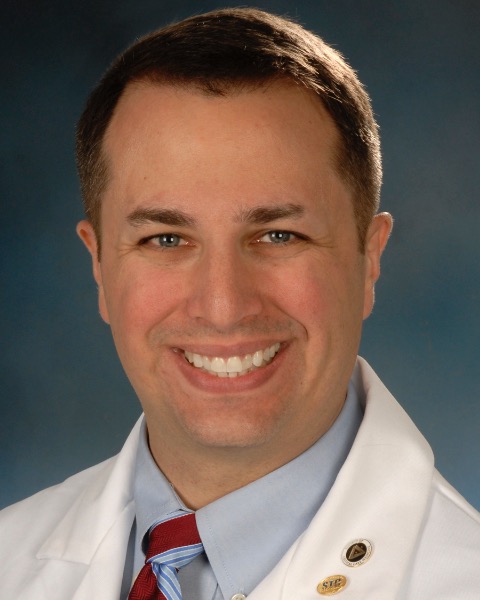MARS Treatment for Acetaminophen Overdose: King’s College Criteria, Survival, and Liver Transplant
-
SD
Sagar Dave, DO
Fellow in Program in Trauma, Department of Surgery
University of Maryland Medical Center, R. Adams Cowley Shock Trauma Center
Atlanta, Georgia, United StatesDisclosure information not submitted.
-
.jpg)
Guinevere Johnson, BA
University of Maryland Medical Center
Baltimore, MDDisclosure information not submitted.
-
WT
William Teeter, MD
Physician
University of Maryland School of Medicine, United StatesDisclosure information not submitted.
-
TS
Thomas Scalea, MD, MCCM
Attending
University of Maryland Medical Center, R. Adams Cowley Shock Trauma Center, United StatesDisclosure information not submitted.
-
CK
Christopher Kolokythas, RN, MS, CRNP
Nurse Practitioner
University of Maryland
Baltimore, Maryland, United StatesDisclosure information not submitted.
-
SG
Shannon Gaasch, CRNP
Nurse Practitioner
University of Maryland Medical Center, United StatesDisclosure information not submitted.
-
DM
Donna Mursch, RN, MSN
Assistant Nurse Manager
University of Maryland, R Adams Cowley Shock Trauma Center
Baltimore, Maryland, United StatesDisclosure information not submitted.
-
KA
Katie Andersen, ACNP, BSN, MSN
University of Maryland Medical Center, R. Adams Cowley Shock Trauma Center
Baltimore, MD, United StatesDisclosure information not submitted.
-
JB
Jeff Broski, RN, CCRN
Senior Clinical Nurse
University of Maryland, R Adams Cowley Shock Trauma Center
Baltimore, Maryland, United StatesDisclosure information not submitted.
-
BD
Brittany Daniels, RN, CCRN
Senior Clinical Nurse
University of Maryland, R Adams Cowley Shock Trauma Center
Baltimore, Maryland, United StatesDisclosure information not submitted.
-
EP
Elizabeth Powell, MD
Assistant Professor of Emergency Medicine
University of Maryland School of Medicine, United StatesDisclosure information not submitted.
-

Kim Boswell, MD (she/her/hers)
University of Maryland Medical Center, R. Adams Cowley Shock Trauma Center
Baltimore, MDDisclosure information not submitted.
-
DH
Daniel Haase, MD, (he/him/his)
Associate Professor of Emergency Medicine and Surgery
R. Adams Cowley Shock Trauma Center
Baltimore, MDDisclosure information not submitted.
-

Samuel Galvagno, DO, MS, PhD, FCCM
Professor
University of Maryland School of Medicine
Pasadena, MD, United StatesDisclosure information not submitted.
First Author(s)
Co-Author(s)
Title: MARS treatment for Acetaminophen Overdose: King’s College Criteria, Survival, and Liver Transplant
Introduction:
Molecular Adsorbent Recirculating System (MARS) is an extracorporeal liver support system that uses albumin dialysis to treat patients with acute liver failure (ALF). In this series, we evaluate the use of MARS in patients with acetaminophen (APAP) induced ALF hypothesizing that MARS would be associated with higher than predicted survival according to the Model for End-stage Liver Disease (MELD) score, and may reduce the need for liver transplantation in patients meeting Kings College Criteria (KCC).
Methods:
We reviewed all adult patients treated with MARS from 2015-2021 for ALF from APAP toxicity. Data were analyzed with parametric and non-parametric statistics as indicated, comparing survivors and non-survivors. Survivors and patients who underwent a liver transplant, were further stratified by KCC.
Results: Twenty adult patients were treated. Median KCC was 2 [1-2] with 0 patients meeting all four criteria. The median MELD score was 30.5 (20.5-36) predicting a median 3-month survival of 24%. Both hospital discharge and 3-month survival was 55%. Five patients (25%) required liver transplant; four of these patients survived to hospital discharge. When stratified by KCC, 2/10 with 1 criteria (22%), 1/7 with 2 criteria (14.3%), and 1/3 with 3 criteria (33.3%) required transplant. When stratified by KCC, survival to discharge, was 66.7% (KCC=1), 28.6% (KCC=2), and 100% (KCC=3). In univariate analyses, survivors had a lower lactate concentration (1.9 vs. 5.3 mmol/L, P =0.04) and lower INR (1.4 vs. 1.9, P=0.037) after MARS. AST, ALT, bilirubin, encephalopathy grade, and serum ammonia concentrations post MARS did not correlate with survival.
Conclusions:
In this series of patients with ALF due to APAP intoxication treated with MARS, survival was higher than predicted according to MELD scores. A lack of a consistent correlation with KCC and need for liver transplantation suggests a variable response to MARS. Lactate clearance and improvement in INR were associated with survival, indicating a favorable response to MARS. In appropriate patients, MARS may have the potential to prevent the need for a liver transplant and improve survival in patients with APAP-induced ALF. These data add to a growing body of literature supporting the use of MARS for potentially reversible causes of ALF.
